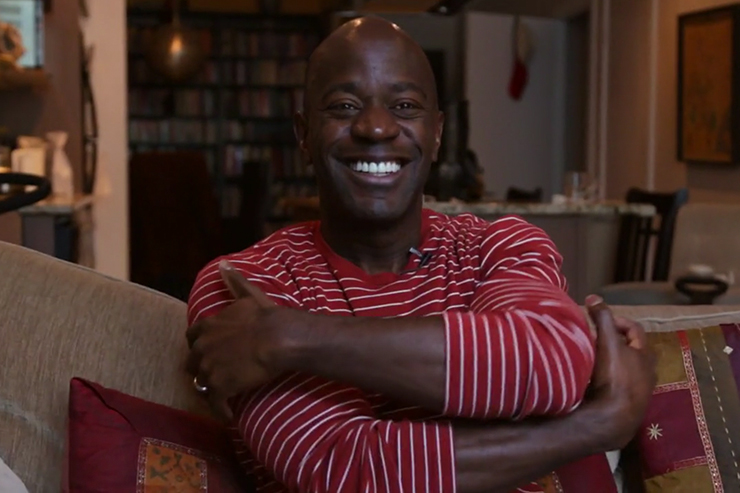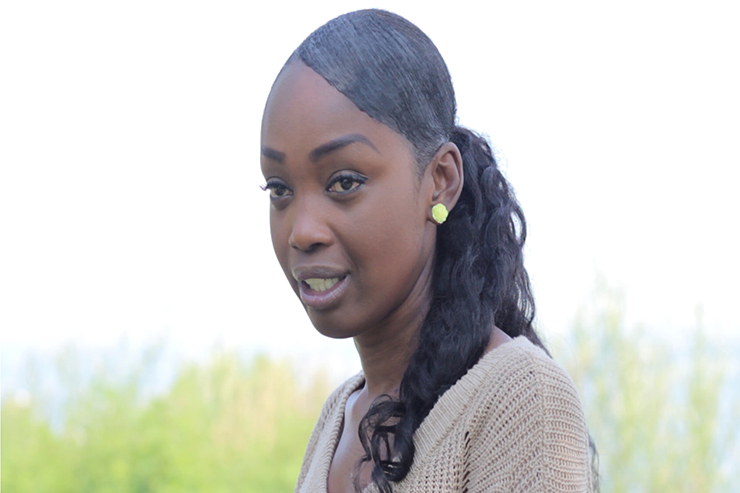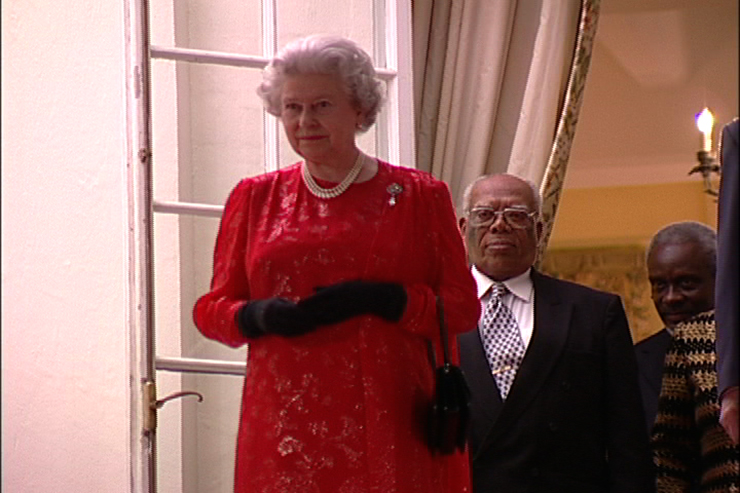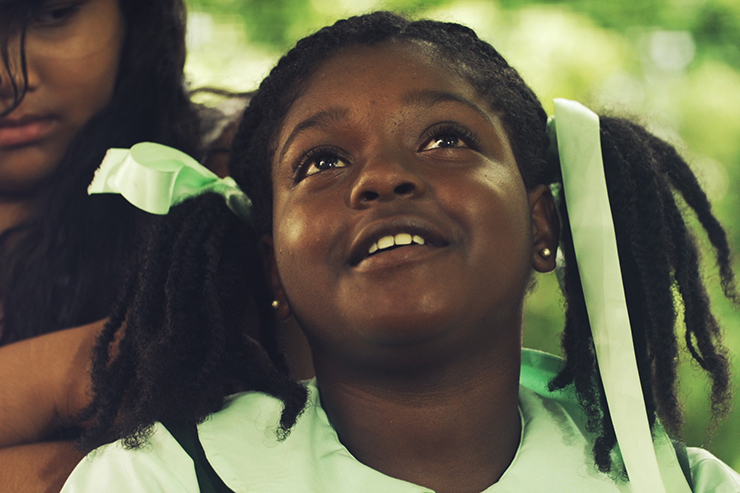Celebrating the 10th year since its inception, the Caribbean Tales Film Festival (CTFF) continues to be a platform for films and filmmakers from the Caribbean and its diaspora community worldwide.
The annual CTFF, which will take place September 9-19 at Toronto’s Royal Cinema, ensures that a multitude of stories covering the diverse Caribbean experience are shown, providing a unique experience for filmmakers and audience members alike.
Here is a look at five films certain to entertain, and educate, not to be missed at this year’s festival.

Deported || Feature Film || Haiti
“It’s a film about [the] deported, but it’s also a film about identity.”
Director Rachèle Magloire describes her documentary on deportees as a film that sheds light on citizenship, immigration and social policy.
Deported explores the harsh realities faced by Canadian and American citizens of Haitian descent who are sent to live in Haiti as a lasting punishment for various crimes they’ve been convicted of.
Forced repatriation – through the eyes of the deportee –is a process which involves taking an individual away from the ‘home’ they’ve become accustomed to and stashing them away in a third world country where they’re unable to access the same quality of life.
“It’s not just a Haitian issue. It’s a continental issue.”
The film’s story is told by a series of individuals facing deportation. Through Magloire’s interviews deportees often detail the difficulty that comes with leaving a family behind in Canada or the United States, and being forced to live without comfort in Haiti – a country unfamiliar to them.
“Majority of [the deportees] are in limbo [in Haiti],” says Magloire from Haiti. “They don’t understand why they’re here. They’re trying to make a living and it’s very hard.”
Being seen as ‘criminals’ discarded by developed nations and left for Haiti to deal with only worsens the condition for those being punished, as natives naturally develop ill feelings towards deportees.
Seeing how these individuals are exiled served as a key factor in pushing Haitian-Canadian director Magloire to tell this story.
“It’s not just a Haitian issue. It’s a continental issue. People are deported [to] everywhere in the Caribbean [and] Central America – El Salvador, Guatemala, Mexico,” explains Magloire. “It’s really a population movement created by these laws.”
Black Men Loving || Short Film || Canada
Seeing as the general perception of being a Black father is often characterized by negative stereotypes connecting to absenteeism and apathy, Ella Cooper’s documentary Black Men Loving finds its footing by explaining things from a different, more positive perspective.
In the film Black fathers who find pleasure in the challenge of fatherhood explain why they enjoy parenting, in addition to how they’ve adjusted to it.
“If I were to base my fathering on what I saw in the media, [the media] would tell me that [it] doesn’t exist,” says Brandon Hay, founder of the Toronto-based Black Daddies Club, in the film.
Cooper was genuinely excited to play a part in reshaping the views of parenting in the Black community.
Motivated by the undeniable lack of progressive representation of Black men providing for their families Hay speaks of, Cooper was genuinely excited to play a part in reshaping the views of parenting in the Black community.
“My work over the last couple of years has really been around celebrating Black Canadian voices,” Cooper explains.
“I had been doing a lot of research and projects that were around the Black body in Canada and the sense of blacklessness that exists when you really look at who is represented in Canada and who is represented in dominant visual culture. We’re seeing in the media right now how Black men are being depicted – the array of voices and experiences [isn’t] being shown in film and television yet. It was just a real honour to be asked to contribute to this in a small way.”
The Blind Stigma || Feature Film || Canada
Another preconceived perception of Black people is also a prevalent component in The Blind Stigma, a film directed and produced by Stacy-Ann Buchanan.
The feature film places its focus on mental health and the perception of shame connected to mental illness.
As Buchanan hears the stories of four individuals she knows personally – and details her own past – issues such as depression and anxiety are tackled head on, along with the stigmas associated with these conditions.
“My roommate at the time, she said to me one day, ‘I think you have anxiety.’ I went into my room and thought to myself – anxiety? White girls get that.”
“My roommate at the time, she said to me one day, ‘I think you have anxiety.’ I went into my room and thought to myself – anxiety? White girls get that,” says Buchanan at the beginning of the film.
As someone who has had her own share of adversity tying to this issue, Buchanan stresses the need for conversation – in the effort of coping with mental illness and raising awareness of the stigma surrounding it as well, particularly within the Black community.
“Every time I screen this documentary, there has to be a forum about it. You can’t just screen [this documentary] and leave it like that,” Buchanan says.
“People want to talk to you. People want to hug you. People want to say, ‘Thank you so much for bringing this to life, because I’m struggling with it.’ I always encourage people – have an outlet to talk. The first step in ending stigma or bringing a close to that stigma is to talk. Don’t be ashamed either, because your story can motivate and inspire someone.”
Price of Memory || Feature Film || Jamaica
Recollections of a grim past can have their repercussions on the present.
Karen-Marks Mafundikwa’s Price of Memory is one of the CTFF’s more investigative documentaries, studying historical and present-day race issues stemming from the days of British-controlled slavery in Jamaica.
Through exploring the relationship between Britain and Jamaica, Mafundikwa digs into the Jamaican desire for reparations and repatriation that started to gain some momentum following Queen Elizabeth II’s 2002 visit to the Caribbean island.
Mafundikwa collects countless conversations from various Jamaican people with a stance on the issue.
In her 10-year examination of the case for reparations and repatriation, Mafundikwa collects countless conversations from various Jamaican people with a stance on the issue – some supporting the push for monetary reimbursement and the freedom to relocate back to Africa (where the slaves originated from), others against the push due to the strained relationship between Jamaica and Great Britain that could potentially result if the movement succeeds.
“I always wanted it to be a call and response between the past and the present, but [I also wanted] to show the multi-dimensions around it. [Not only] talking about reparations, but also what these people live with – the psychological effect,” explains Mafundikwa.
Mafundikwa finds that in Jamaica many monuments and structures serve as constant reminders of slavery and its brutality. In the film, she travels to Great Britain to see if the same is true there. What she discovers is that while reminders do exist in the European country’s architecture they are less overt.
Sally’s Way || Feature Film || Trinidad & Tobago
Sally’s Way offers a story of youthful ingenuity and persistence as a child pushes to make the best out of a difficult situation.
“Prior to Sally’s Way, there was really no feature film for children in Trinidad,” director Joanne Johnson explains.
Making the jump from book text to a visually stunning 76-minute film, Johnson wrote and directed Sally’s Way, which details the life of a young girl named Sally (played by actress Alyssa Highly) who is forced to live without her family following her grandmother’s HIV/AIDS diagnosis.
With her mother and father already out of the picture, Sally is forced to adjust to life with a new family that isn’t exactly warm and welcoming.
“The question that I asked myself when I was doing the script was: can I write this about a little girl whose life is affected so powerfully by HIV/AIDS, but [not have the film] be about HIV/AIDS?”
It’s no mistake that the story of the bright young girl’s optimism and persistence shines throughout, although the condition of her reality is largely shaped by the presence of an illness in her family – an illness known well by many.
“The question that I asked myself when I was doing the script was: can I write this about a little girl whose life is affected so powerfully by HIV/AIDS, but [not have the film] be about HIV/AIDS?” shares Johnson. “That was the [main] intention of the film, but bringing it to screen in a way where maybe [for] kids who are older and parents who are willing, it would open a conversation for them about it. I really wanted Sally’s character and her ability to be creative in any circumstance to be the main teacher of the film and to speak to all of us, whatever our conditions are.”








Comments are closed.